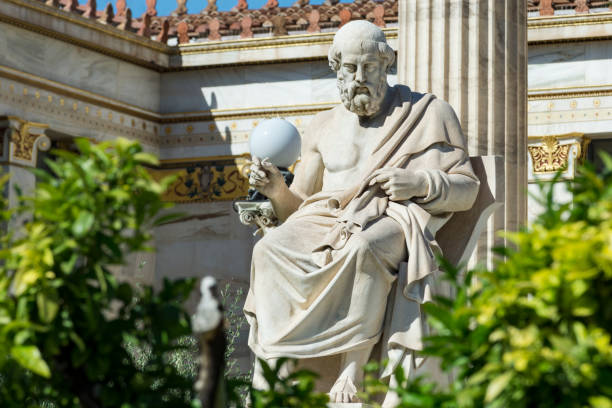During The Classical period in ancient Athens, an intellectual movement began with a group called the Sophists. The Sophists, translating roughly to “wisdom bankers,” were a group of highly educated thinkers who charged money for tutoring.
**Side note: up until this point, the people of Athens widely believed that wisdom should be shared freely. In fact, the term “Sophist” is meant to be an insult
The Sophists are most famous for their belief that there is no such thing as inherent morality or justice. Some famous sayings on this issue are “might makes right,” “there is no right or wrong, only can and cannot,” and “custom is king.” The core argument behind their belief lies in the concept of physis v.s. nomos. “Physis” is a Greek word meaning “nature.” Essentially, physis pertains to that which is inherent to the nature of the world. For example, math is a concept that exists in the very fiber of the universe. The Pythagorean Theorem is true anywhere at any time. One could change the variables or symbols, but a2 + b2 will still equal c2 . On the flip side, “nomos” is a Greek word meaning “custom.” Nomos, then, refers to anything humans have created for the structure of society. For example, in America, we drive on the right side of the road. This rule was created out of convention to prevent car accidents. It is not inherently good or bad– it is simply one form of maintaining order. (In many other countries, it is custom to drive on the left side of the road!). Taking in the various cultural and religious practices that exist in the world, all of which claim moral grounds, the Sophists decided morality was more like nomos than physis.
Based on what I have briefly explained, what is your gut reaction? Do you think there’s no such thing as right and wrong? Are you unsettled, but not sure how to refute? Share your thoughts!
For further reading, look here: https://plato.stanford.edu/entries/sophists/

Hello commenters! Ah….I’m here first! OK, then, let’s see…..what I am curious about are examples. Can anyone think of a contemporary debate where the question “is morality / this particular moral norm natural, or merely imposed by social convention?” is at stake?
PS–For folks who want to trace Greek thinking forward toward the present, here’s a (long) entry from the same source:
https://plato.stanford.edu/entries/moral-relativism/